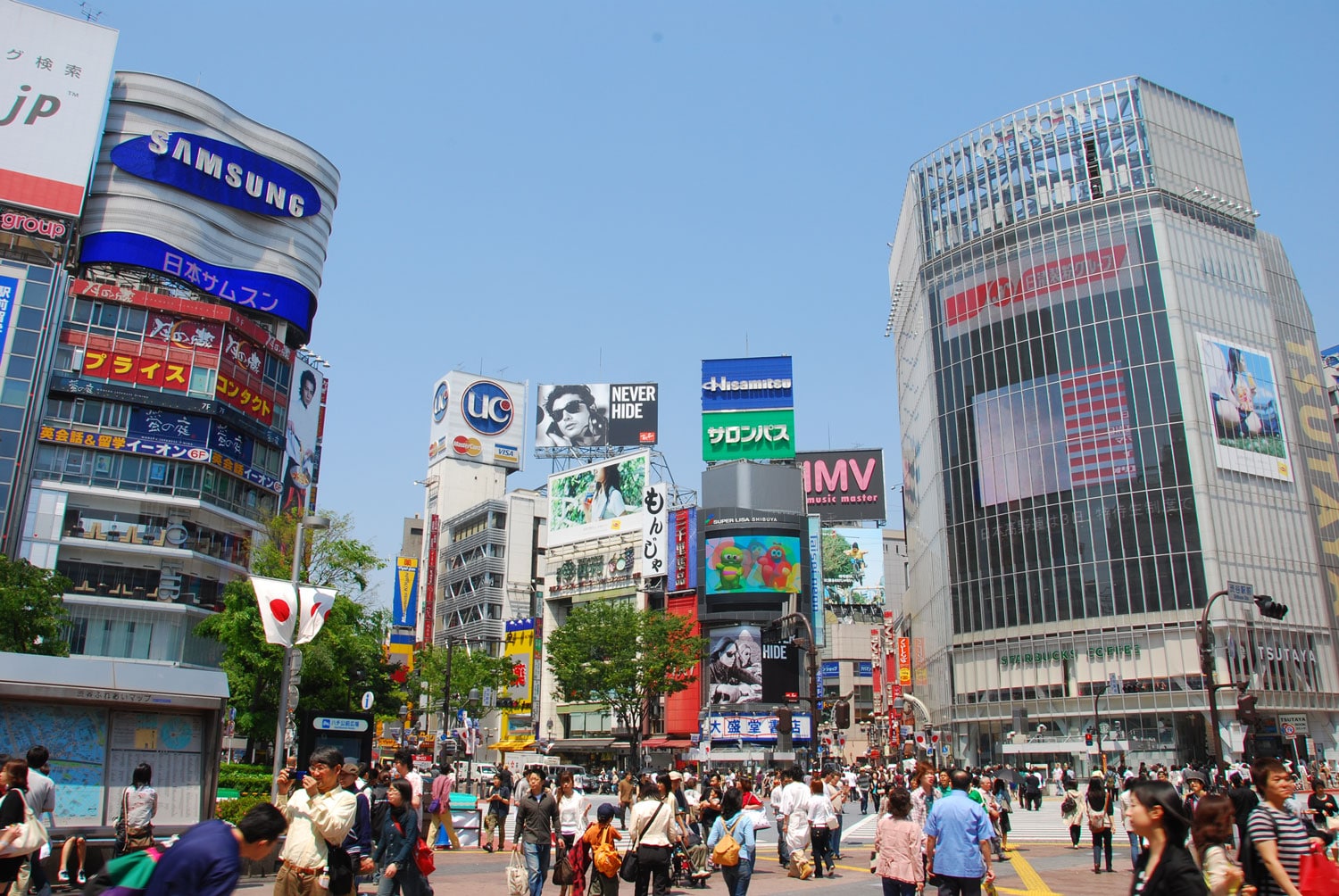Tokyo is a city always on the move and always changing. This wasn’t my first trip there, but it had been three years since my last visit. I was most familiar with the Shibuya neighborhood where I had visited numerous times. But Shibuya is much more than a neighborhood; it’s a district comprised of multiple neighborhoods. Let’s explore more of Shibuya and Daikanyama, Ebisu and Harajuku
Shibuya
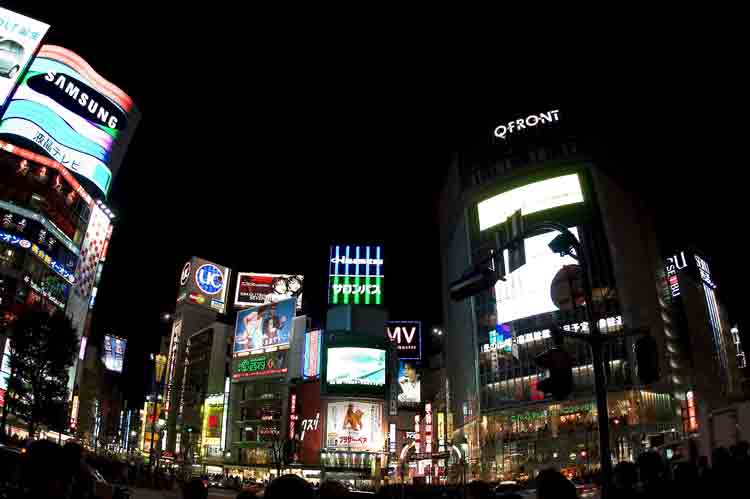
When you exit the JR Yamanote line and descend the staircase into Shibuya Station, you’re greeted by the statue of Hachiko, the dog so loyal to his master that he continued to wait for him at the station for 9 years after his beloved owner’s death. Beyond Hachiko’s statue and the famously busy intersection in Shibuya with its neon advertisements and throngs of pedestrians, the Shibuya ward is home to some of Tokyo’s most treasured neighborhoods. When you venture away from busy Shibuya Crossing, where as many as 2500 people cross the intersection every time the light changes, you find rich local experiences. From ramen shops to art galleries, there’s a little bit of everything.
As the center of youth culture and fashion, this is one of Tokyo’s busiest and most colorful neighborhoods. Department stores are everywhere and so are throngs of people. With each green crossing light, the Times Square-esque intersection, punctuated by glaring neon advertisements and giant video screens, floods with pedestrians making it a popular spot for photos and movies. But walk up Omotesando-dori toward Shibuya’s back streets and you find a different story.
Ramen shops are abundant as are other quirky shops and galleries. Check out the Design Festa Gallery, a hub of creativity which showcases rotating exhibits from young Japanese artists and photographers inside its two buildings and 21 exhibition spaces. The space also houses a café, bar and an okonomiyaki restaurant—a pancake filled with vegetables, meat, and seafood — the ultimate comfort food from the Kansai region.
Browse Jam Home Made specializing in “post-punk” clothing and accessories. Taking inspiration from flea-market style, Nomadic Life Market has something for everyone in its wide selection of goods including vintage appliances, clothing and furniture.
When night falls, use what’s left of your stored energy to dance the night away at WOMB. Famous for its four levels of sound, WOMB is one of Tokyo’s longest running nightclubs and consistently ranked in the top three clubs worldwide.
Daikanyama
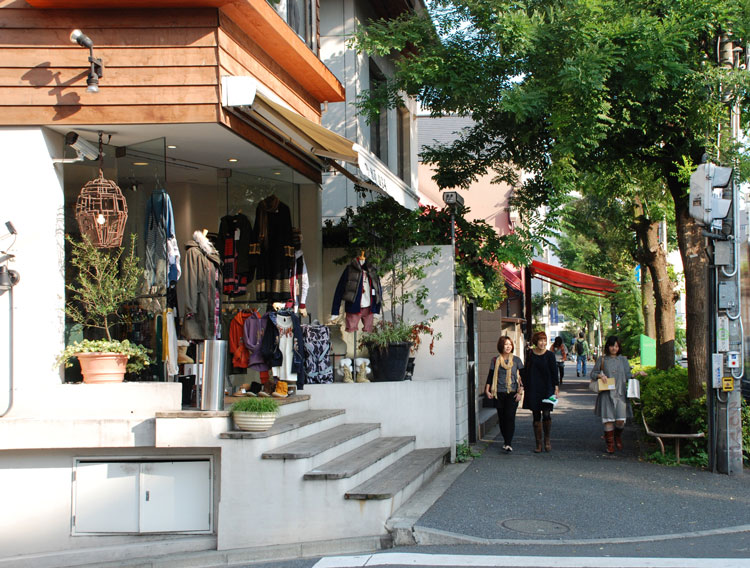
Daikanyama exudes the charm of a European village along with the sophistication of New York’s SOHO neighborhood. Art galleries, tempting pastry shops, open-air cafes and restaurants tucked into hidden nooks are part of the neighborhood’s allure and a distinctive collection of boutiques display an assortment of clothing from vintage to high-fashion.
Located in the Daikanyama T-Site which is spread across three interlinked buildings adorned with lattices of interlocking T’s, Tsutaya is a fantastic book, magazine and music emporium. It would be easy to spend an entire day browsing the selection here which include a wealth of magazines, art books, music and DVDs. The complex includes the ultra-cool Anjin Lounge where the bar’s pedestal is appropriately made from books. Vintage Japanese magazines are scattered around the room and a full cocktail menu is available when you’re ready.
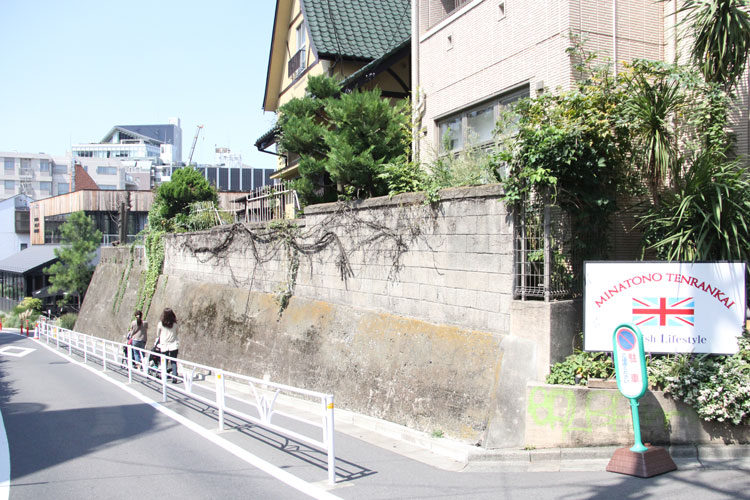
A short walk from the Hillside Terrace retail complex at the edge of Daikanyama is the Kyu Asakura House. Built in 1919, this traditional house is a treasure you don’t want to miss. Designed by the former Chairman of the Tokyo Assembly, Torajiro Asakura, the house is surrounded by meticulous gardens enhanced by stone lanterns and landscaped rocks amid maple trees. It’s rare to find a cultural home from the Taisho-era that is open to the public and this one is exquisitely restored. Situated beneath a clay-tiled roof, highlights include Cedar Rooms decorated in the sukiya-zashiki style and a tatami-floored tea room.
Ebisu
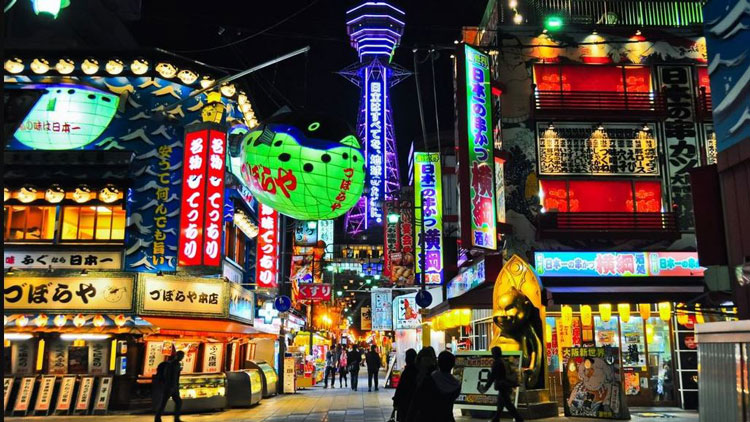
You can’t go wrong in a neighborhood named for a beer. Ebisu is named for the popular Yebisu Beer that was brewed here at the former Yebisu Beer Factory. Today the massive factory has been converted into Yebisu Garden Palace that houses restaurants, shops and museums—including the Museum of Yebisu Beer. The museum offers a 40-minute tour given in Japanese, but don’t worry, you’ll figure out what’s being said … besides, the end goal is the beer-tasting which includes two beers, one light and one dark. The tour culminates with a game of rock-paper-scissors with your tour group; if you win you’re given another glass of beer.
The only museum of its kind in Japan, the Tokyo Metropolitan Museum of Photography is also in the Yebisu Garden Place. Spread over 4-stories dedicated to photography and video, the museum has a permanent collection of over 24,000 works displayed in three exhibition halls and a movie hall. The 4th floor library contains over 60,000 volumes.
Inspired by the look of an old European city with plazas, symmetrical gardens and passages, Yebisu Garden Place is a hub of high-end shopping and dining and is home to a first rate bakery by Michelin starred chef Joel Robuchon, La Boutique de Joel Robuchon.
For other dining options, venture down the side-streets and rub elbows with the locals at one of the small izakayas, specializing in small plates of grilled meat and vegetables, sashimi and other casual dishes cooked in tiny kitchens.
Harajuku
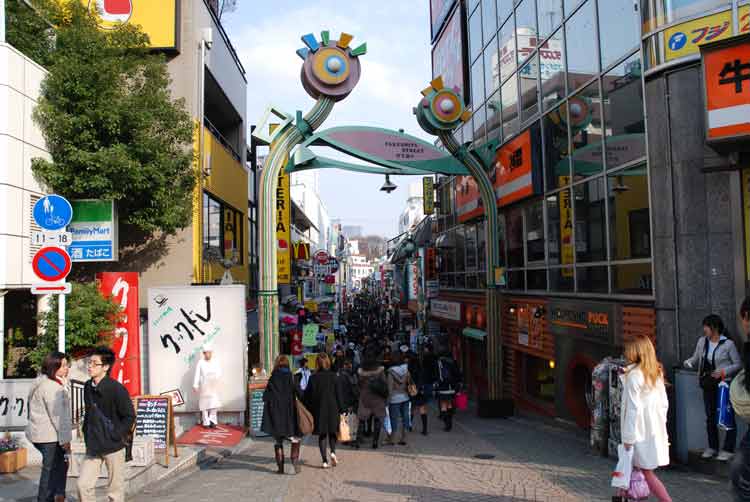
Gwen Stefani’s Harajuku girls aren’t here anymore, but you’ll find plenty of trendy teens buzzing around Tokyo’s Harajuku neighborhood. Known for its vivid street art and quirky vintage clothing stores along Takeshita-dori Street, Harajuku is a mecca for young shoppers with a mix of both chains and independent stores. You’ll find things that aren’t offered anywhere else in stores known as “antenna shops” which are stocked with prototypes for test-marketing. If shopping with hundreds of trendy teenagers isn’t your thing, venture down the side streets for a completely different vibe.
In the residential areas, intimate cafes and restaurants provide an escape from the chaos of Takeshita-dori Street. Here, mainstream consumption disappears in favor of local boutiques tailored to a particular niche.
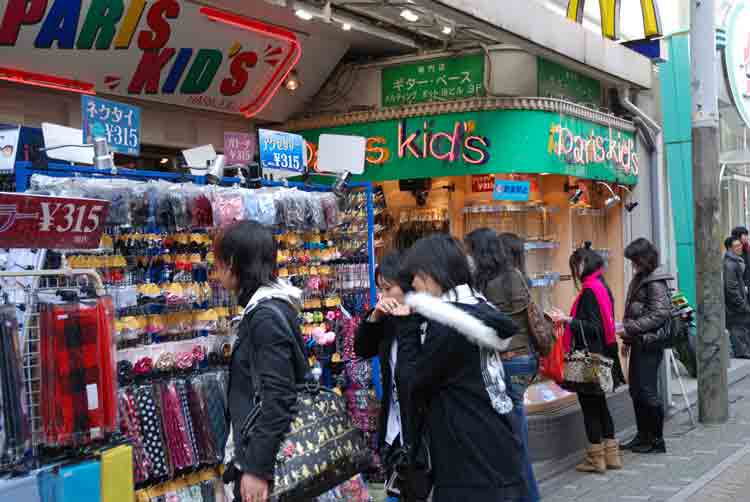
Your escape continues in Yoyogi Park. The former Olympic Village for the 1964 Tokyo Olympics, it’s is one of the city’s largest green spaces. This urban oasis dotted with mini-lakes offers miles of nature. Famous for its regular weekend festivals, Yoyogi Park plays host to the annual Earth Day and Gay Pride, along with numerous other cultural and food festivals.
Nearby, Meiji Shrine also offers a tranquil wooded escape in the massive shrine complex dedicated to the Emperor Meiji and Empress Shōken.
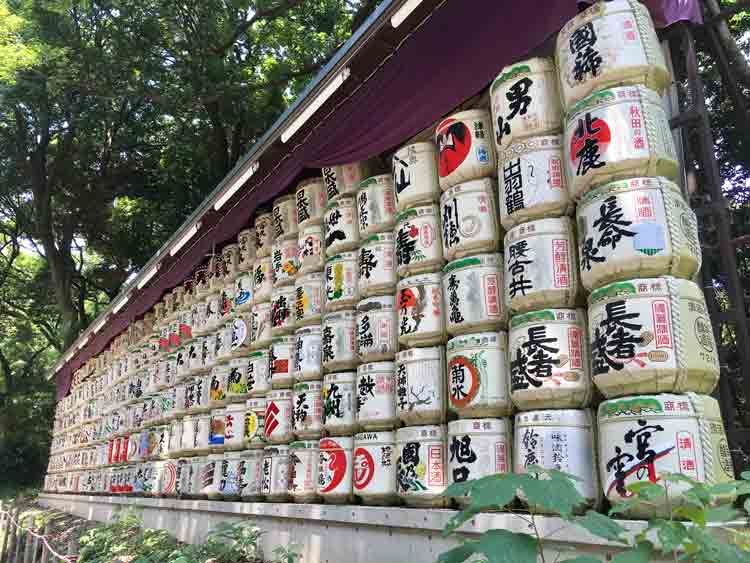
Shibuya is undergoing a lot of exciting change right now in advance of the 2020 Olympics. Two projects set to open in autumn 2018 include Shibuya Stream, immediately south of Shibuya Station and Shibuya Daikanyama R Project, between Shibuya and Daikanyama stations. Shibuya Stream is located right by the Shibuya River, a narrow stream running alongside the major thoroughfare of Meiji-dori. It features hotel accommodation, shopping, dining and commercial space and will officially open on September 13, 2018. Google Japan’s headquarters will occupy floors 14-35 at the top and the 177 room Shibuya Stream Excel Tokyu Hotel will debut on floors 9-13.
Shibuya is much more than the sum of its parts when you take a stroll beyond its celebrated crosswalk.
Where to Stay:
Shibuya Stream Excel Tokyu Hotel – The hotel’s concept is ‘The Shibuya Sensibility,’ which (obviously) looks to stimulate Shibuya sensibility to guests. The 4th floor will house a lobby lounge, a restaurant and a bar with a causal vibe. Opening on September 13, 2018, the brand new guest rooms were curated with an original “vintage modern” design and have excellent functionality. 3-21-3, Shibuya, Shibuya-ku, Tokyo 150-0002; +81-3-3406-1090. www.tokyuhotels.co.jp
Trunk Hotel – Recently opened in the Shibuya neighborhood, the bespoke Trunk Hotel is a welcome addition to Tokyo’s design hotel scene. Housed in two four-story buildings, design features include recycled woods, tiered balconies, indigo patchwork wall hangings and monochrome bathroom tiling. There’s a focus on local and eco-friendly throughout the property which features made-in-Japan amenities, guest rooms stocked with dried fruits from a nearby Shibuya shop and a fleet of customized up-cycled bicycles that were formerly abandoned. 5-31 Jingumae, Shibuya-ku, Tokyo; +81-3-5766-3210. www.trunk-hotel.com
Hoshinoya Tokyo – Indoor hot springs and Kenjutsu lessons; a sake lounge and a tea ceremony workshop, the Hoshinoya is modeled after traditional Japanese inns known as ryokan, giving the highly modern amenities an anachronistic twist. There’s a melding of modernity and time-honored customs within the hotel’s guest rooms which come complete with your own personal yukata (casual kimono). And when the city beckons, sightseeing tours—ranging from helicopter to rickshaw—are just a call away. 1-9-1 Otemachi, Chiyoda-ku, Tokyo; +81-3-6214-5151. www.hoshinoyatokyo.com
Keio Plaza Hotel – For more than four decades, the Keio Plaza has been offering guests an exploration into traditional Japanese culture. Located in the Shinjuku ward, it offers a myriad of events focused on extravagant localities, including a special sightseeing tour by limousine of prestigious sake breweries (like the three-hundred-year-old Ozawa Brewery, renowned for its “Sanaowi” sake). Guests can also experience authentic tea ceremonies in the Keio Plaza’s tea ceremony room, Sho-Fu-An. 2-2-1 Nishi-Shinjuku, Shinjuku-ku, Tokyo 160-8330; +81-3-3344-0111. www.keioplaza.com
Where to Eat:
Usukifugu Yamadaya – A 3-Michelin-starred restaurant, Yamadaya specializes in the preparation of fugu (or pufferfish). For a restaurant to serve fugu, which is poisonous if ill prepared, it needs to go through an extensive licensing procedure that includes multiple classes and a proficiency test. Rest assured, Yamadaya has been serving beautifully prepared fugu since opening in 2006, though head Chef Toshio Kusakabe has been certified since 1989. 4 Chome-11-14 Nishiazabu, Minato, Tokyo; +81 3-3499-5501
Yebisu Garden Place – Inside this shopping, business and entertainment complex housed in the former Yebisu Beer Brewery, you’ll find everything from fast food chains like Burger King and Starbucks to the Michelin 3-starred restaurant, La Boutique de Joel Robuchon. 150-6018 4-20, Ebisu, Shibuya-ku, Tokyo; +81 03-5423-7111; www.gardenplace.jp
Maisen—Behind the Apple store on Omotsando you can find the haven for Tonkatsu – Panko flaked deep fried pork cutlet served in a Japanese diner like setting with all the trimmings from cabbage (Japanese cole slaw) to pickle and rice. It’s delicious here and a good value. 4-8-5 Jingumae, Shibuya-Ku; +81 3 3470 0071; www.mai-sen.com
Where to Drink:
Coloso Coffee – This cool coffee and bake shop is located the Nomadic Life Market in the center of Harajuku and has a sister branch in Oakland, California. Enjoy a coffee and pastry after your shopping spree. 3-21-1 Pura Flor Jungumae Building. 1F Jungumae, Sibuya-Ku; +81 3 3403 2772; www.colosocoffee.com
Spring Valley Brewery—The Tokyo branch of this craft brewery is located in Daikanyama. Enjoy one or all six of the craft beers made on premise. There is also a restaurant with a full dining menu for lunch and dinner. Log Road Daikanyama, Daikanyama, Shibuya-ku, Tokyo, +81 03-6416-4960; www.springvalleybrewery.jp
Bar Benfiddich – Hiroyasu Kayama, head mixologist at Bar Benfiddich, opened this establishment in 2013 and it’s been one of the hottest bars in Japan since. Kayla’s apothecary style cocktails are the highlight of the bar—jars of spices and infusions line the walls behind him as he concocts on-the-fly drinks invented for his customers. 1 Chrome–13–7, Shinjuku, Nishishinjuku, Tokyo; +81 3-6279-4223. www.facebook.com/BarBenfiddich
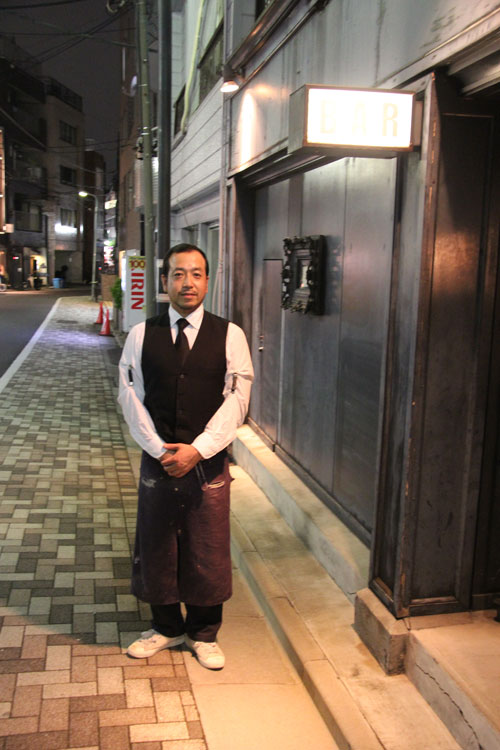
Bar Benfiddich – Photo by Jeff-Greif
Fuglen– Meaning bird in Norwegian, this design shop from Norway opened in Shibuya and features items made there. It doubles as an espresso bar by day and by night it turns into a craft cocktail bar. 1-16-11 Tomigaya, Shibuya-ku; +81 3 3481-0884; www.fuglen.no
Where to Shop:
Jam Home Made – A prominent streetwear brand specializing in “post-punk,” Jam Home Made offers a variety of clothing, from bridal to accessories modeled after the Hollywood blockbuster Pirates of the Caribbean. 3 Chrome-22-11 Jingumae, Shibuya, Tokyo; +81 3-3478-7113. www.jamhomemade.com
Nomadic Life Market – An urban flea market that offers a wide variety of goods including furniture, clothing, and vintage appliances. The options here are so varied and unique that no matter what your style, you will find something that catches your eye. 3-21-1 Pura Flor Jingumae Bldg 1F Jingumae Shibuya-ku, Tokyo; + 81-3-3403-2772. www.nlm.tokyo
What to See and What to Do:
Design Festa Gallery – This creative hub in Shibuya showcases rotating exhibits from young Japanese artists and photographers. There’s also a café, bar and okonomiyaki restaurant. 3 Chome-20-18 Jingumae, Tokyo 150-0001; Tel: +81-3-3479-1442. www.designfestagallery.com
Tsutaya Books – (Daikanyama T-Site)- This outstanding book, magazine and music emporium located in the Daikanyama T-Site will hold you captive for hours while you browse its expansive selections. Take a break upstairs in the ultra-cool Anjin Lounge. 17-5 Sarugakucho, Tokyo 150-0033; +81 3-3770-2525; www.real.tsite.jp/daikanyama/english
Kyu Asakura House – An important cultural property five-minutes’ walk from Daikanyama Station, this nearly 100 year old house serves as a remarkable example of mansions built during the Meiji era until the 30th year of the Showa era. 29-20 Sarugakucho; Tel: 03-3476-1021. www.city.shibuya.tokyo.jp/est/asakura.html
Museum of Yebisu Beer – Located inside the Yebisu Garden Place in the former Yebisu Brewery this beer museum educates in Japanese, but the beer tasting transcends all language barriers. Ebisu Garden Terrace at Ebisu 4-20-1, Shibuya-ku, Tokyo; +81 03-5423-7255; www.sapporobeer.jp/brewery/english
Tokyo Metropolitan Museum of Photography – Also known as the Tokyo Photographic Art Museum, it houses an extensive collection dedicated to photography and video exhibited over 4 floors, including a library with over 60,000 volumes. 1-13-3 Mita Meguro-ku, Tokyo 153-0062; +81 03-3280-0099; http://topmuseum.jp/
WOMB – If you’re in the mood to go dancing or just want a glimpse of Japan’s night-life, WOMB is the be-all end-all of Japanese youth culture. Focused mostly on Japanese and Asian artists, it provides the quintessential pop-culture experience. If you’re looking for more internationally known musicians, WOMB attracts household names as well, ranking second-best club in the world by London’s celebrated music magazine, “Mixmag.” Intex Ebisu bldg.6F, 2-1-10 Ebisuminami, Shibuya-ku, Tokyo. www.womb.co.jp/en/about/
Yoyogi Park – Escape the hustle and bustle with a visit to this former Olympic Village where 134 acres of tranquility await along with the massive Meiji Shrine. 2-1 Yoyogikamizonocho, Shibuya, Tokyo 151-0052; +81 3-3469-6081; www.tokyo-park.or.jp/park

